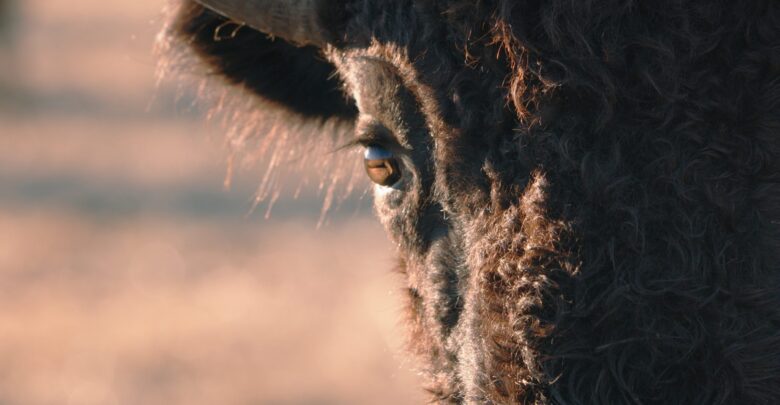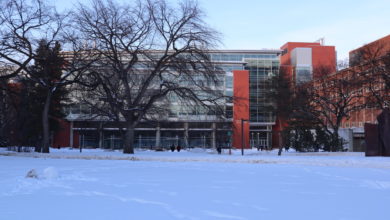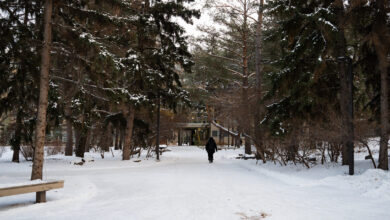U of A filmmaker releases documentary ‘Singing Back the Buffalo’
Tasha Hubbard explores the historical relationship between Indigenous people and the Great Plains buffalo in her newest film.
 George Hupka
George HupkaFilmmaker and University of Alberta associate professor in the faculty of Native studies, Tasha Hubbard, explores the relationship between Indigenous peoples and the buffalo in her latest documentary, Singing Back the Buffalo.
The buffalo have been a central subject of Hubbard’s academic work since her master’s degree.
“I’ve always been engaged with the way our stories of the buffalo taught us so much about ourselves as Indigenous people,” she said.
The film explores the historical relationship between Indigenous peoples and the buffalo. Colonialism “sought to damage and dismantle that relationship by extermination of the buffalo,” according to Hubbard.
Singing Back the Buffalo was influenced by Hubbard’s involvement with the 2014 Buffalo Treaty. The treaty focuses on revitalizing the buffalo’s physical and cultural presence.
“We can use what agency we have as human beings to support and create space for them to return.”
Filming off and on since 2016, Hubbard described the long filmmaking process as “a labour of love.” She found it rewarding to spend time in Great Plains territory, a space she thinks is “very undervalued.”
“I felt like I was in service to the buffalo, wanting to be a good enough filmmaker to get the best possible footage,” she said.
“The hope is that children will grow up being able to visit buffalo,” Hubbard says
Hubbard emphasized hope for the future of the buffalo in her film.
“We can fulfill our responsibilities to them, given that they took care of us for so long,” she said. “The hope is that children will grow up being able to visit buffalo. We’re looking into the future, not five years or 10 years down the road, but 100 years or more.”
As a keystone species, buffalo influence biodiversity and “a ton of plant and animal life” on the Great Plains, she explained. “They nurtured this land for a long time.”
Hubbard is concerned with bringing the buffalo into conversations about climate health. She describes buffalo as “climate change fighters” that ensure the health of the prairies by doing “an immense load of carbon capture.”
“I want people to have that appreciation for them and to join that effort to make sure that we’re making as much space as possible for them,” Hubbard said.
Hubbard hopes that viewers will gain an appreciation for the species. “I hope that people fall in love with the buffalo and take that home with them,” she said.
“That is the power of film: to engage people and make them excited about something.”
Nature of Things, a CBC television show, will show a short version of the film as an episode. The feature version of the film will be on the Aboriginal Peoples Television Network.
Additionally, the film will be made available for educational purposes. A curriculum based on the film is currently in development, Hubbard added.




